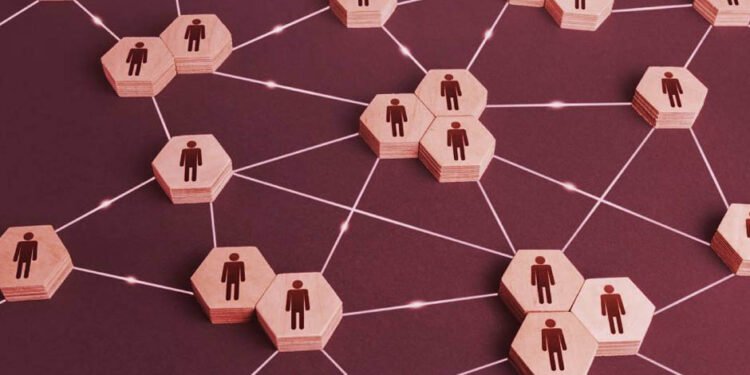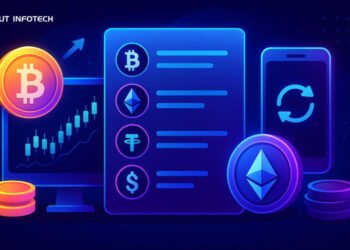Decentralized Autonomous Corporations (DACs) mark a significant change in how organizations work, especially with blockchain technology. They represent a new way of governing, changing the traditional hierarchical systems. The development of organizational structures on the blockchain follows a path from early centralized models to the rise of decentralized autonomous organizations (DAOs), with DACs now being the next step towards clear and fair governance. The importance of DACs lies in their ability to reshape how societies are organized and governed by focusing on decentralization and autonomy. This helps overcome challenges in traditional structures, such as lack of transparency, excessive bureaucracy, and susceptibility to failures at specific points. You can get more info here if you are looking for a free and easy-to-use website that helps people find an education company to start learning about investments.
Understanding DACs
Decentralized Autonomous Organizations (DAOs) vs. DACs
While DAOs and DACs share common roots, distinctions exist. DACs focus on operational autonomy and the incorporation of smart contract-based decision-making processes, differentiating them from DAOs.
Core Principles and Features of DACs
- Decentralization – DACs prioritize the distribution of decision-making power among participants, minimizing the concentration of authority and fostering a more inclusive environment.
- Autonomy – Operational autonomy is a cornerstone, enabling DACs to execute tasks and decisions without reliance on external influences.
- Consensus Mechanisms – Consensus algorithms, such as Proof-of-Stake and Delegated Proof-of-Stake, underpin DACs, ensuring agreement among participants.
- Transparency – The transparent nature of blockchain technology is leveraged to instill openness in DAC operations, promoting trust among stakeholders.
Mechanisms of Governance
Smart Contracts: The Backbone of DAC Governance
Smart contracts, self-executing code on the blockchain, play a pivotal role in DAC governance by automating and enforcing predefined rules without the need for intermediaries.
Token-based Decision Making
Tokens within DACs serve dual purposes as a form of value exchange and governance tool, empowering token holders to participate in decision-making processes.
Voting Systems in DACs
Decisions within DACs often involve voting mechanisms, where stakeholders cast votes based on their token holdings, reinforcing democratic governance principles.
Challenges and Risks
Security Concerns in DACs
As DACs operate in a digital realm, security vulnerabilities must be addressed comprehensively to safeguard against potential exploits and malicious activities.
Regulatory Landscape and Compliance
Navigating regulatory frameworks poses a challenge for DACs, necessitating adaptation to legal landscapes while preserving their decentralized essence.
Handling Disputes and Governance Failures
Establishing robust mechanisms for dispute resolution and addressing governance failures is crucial to maintaining the integrity and effectiveness of DACs.
Real-world Applications
DACs in Supply Chain Management
DACs are increasingly employed to enhance transparency and traceability in supply chains, addressing issues like counterfeit products and ensuring ethical sourcing practices.
Education and Credential Verification through DACs
DACs find applications in validating educational credentials, offering a secure and immutable method of verification, and reducing fraudulent practices.
DAOs in the Arts and Entertainment Industry
Within the arts and entertainment sector, DACs facilitate fair compensation for artists, streamline royalty distribution, and empower creative communities through decentralized governance.
Advancements and Innovations
Integration of Artificial Intelligence in DACs
Exploring the fusion of DACs with artificial intelligence enhances decision-making processes, potentially unlocking new levels of efficiency and adaptability.
Interoperability Among DACs
Efforts to enhance interoperability among DACs contribute to a more connected and collaborative decentralized ecosystem, fostering collective progress.
The Role of DACs in Web3.0 Development
DACs are integral to the evolution of Web3.0, shaping a future internet where decentralized governance and autonomy are foundational principles.
Future Implications
Shaping the Future of Work with DACs
DACs are poised to redefine how work is organized, potentially transforming traditional employment structures and fostering a more collaborative and equitable future.
Potential Disruption to Traditional Organizational Models
The rise of DACs presents a potential challenge to conventional organizational models, urging a reconsideration of established norms and practices.
Collaborative Ecosystems: DACs and the Global Economy
The global impact of DACs on economic systems is a dynamic area of exploration, with the potential to foster collaborative ecosystems that transcend geographical boundaries.
Conclusion
In conclusion, DACs represent a pivotal shift in the organizational landscape, emphasizing decentralization and autonomy as transformative elements in the evolution of structures. As these entities continue to progress, stakeholders are urged to welcome the presented opportunities while staying attentive to the challenges that may emerge throughout this transformative journey. The ongoing development and adoption of DACs signify a collective endeavor to redefine governance, prioritizing trust, transparency, and autonomy as foundational pillars in reshaping organizational structures for a more decentralized future.












